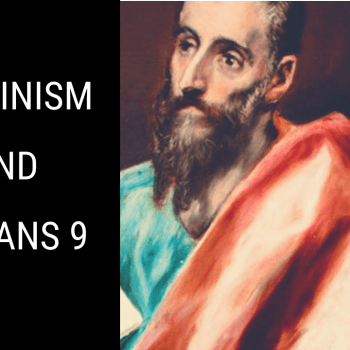1 John 2:2 is one of the foundational texts which speaks against a Calvinistic understanding of the atonement. “He is the atoning sacrifice for our sins, and not only for ours but also for the sins of the whole world.” The reformed position is that Christ’s death was only for the elect, with the possible exception of common grace being bought through the cross.
So how does the Calvinist respond to a text like this? It is not as though reformed commentators have ignored this verse, but they attempt to fit it into their theology. First they ask, “what does world mean?” One discovers that “world” can have multiple meanings. We do this today even. For example we talk about “the world, the flesh and the devil.” We also talk about the world as all ethnicities. We could speak of the world as the planet earth itself. In the same way, the Biblical writers used kosmos in several different ways.
I do agree with reformed commentators in this. Words certainly can have multiple meanings. However, we must look at the context of the passage, how the author uses this word himself, and take the most obvious meaning of the text unless there is substantial evidence to interpret it differently from the plain meaning. So what could the author here mean when he says that Christ died for the sins of the whole world? Reformed will take this text, as well as several others and state that “the whole world” refers to people of all nations, though only the elect of all nations, rather than simply Jews. They go to a similar instance in John’s gospel. In John 3:16, Jesus is talking to a Jew explaining that salvation is for the whole world, not simply for the Jews. Regardless of whether or not I agree with this interpretation of John 3:16, it is an understandable interpretation in context. However, John 2:2 is a different text, spoken to a different audience and does not have the same meaning.
Yes, Jesus when speaking to ethnocentric Jews talked about the universality of salvation its’ primary implication is that salvation is for all nations (though this certainly does not preclude the possibility that this universality refers to every individual in these nations as there is no implication in the context that he only means the elect of these nations).
However, there is no reason to believe that 1 John is written to ethnocentric Jews. This epistle is among the last to be written in the New Testament. At the end of the first century, surely the problem of Jew-Gentile relations had been dealt with. After all, the council of Jerusalem was 40 years before this and Paul’s epistles had been widely circulated for some time now. Thus, one is hard pressed to find this meaning in the text. The only other meaning of the text must be that he died for all men. The other meanings of kosmos would make no sense in this passage. John is certainly not saying that he died for the sins of the earth or the soil.
In this same chapter, John uses the word kosmos several times. “Do not love the world or anything in the world. If anyone loves the world, the love of the Father is not in him. For everything in the world—the cravings of sinful man, the lust of his eyes and the boasting of what he has and does—comes not from the Father but from the world. The world and its desires pass away, but the man who does the will of God lives forever.” (1 John 1:15-17) John uses the term “world” in this epistle to refer to sinful humanity and the corruption of the present age. Thus, what John seems to be saying in the beginning of this epistle is “Christ died not only for our sins (the sins of believers) but also for the sins of the world (unbelieving mankind).” Who is the “our” being spoken of here? This is a catholic epistle, not written to specifically Jewish believers or even one specific church, thus the “our” must refer to Christians in general. Therefor, the “world” is someone other than the “us” being referred to. Thus, if the “us” is the church, the “world” must be those outside of the church.
If one is to take the most obvious meaning of this text, he must admit that Christ died for every man. We must not force our preconceived theological views upon God’s word. Let God speak for himself.











